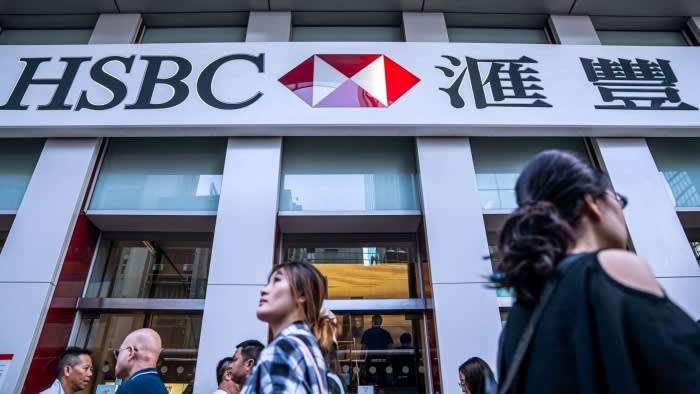Unlock the Editor’s Digest for free
Roula Khalaf, Editor of the FT, selects her favourite stories in this weekly newsletter.
Share buybacks at HSBC, strong earnings and, more recently, promises of an overhaul have been enough to lift its share price by about a quarter in the past year. But long-term investors have heard it all before. They have become all too familiar with grand global restructuring announcements from the lender over the past decade and more. New chief executive Georges Elhedery will need to prove his promises are different to maintain HSBC’s rally.
Third-quarter results helped to get his tenure off to a good start. Profit at the London-headquartered, Asia-focused bank rose a tenth year on year to $8.5bn, beating expectations, as sales in wealth and wholesale banking rose. Its common equity tier one capital ratio rose 0.2 percentage points to 15.2 per cent from the previous quarter. Customer accounts increased, mainly in Hong Kong.
Elhedery has drawn up plans to control costs and improve efficiency to boost earnings. He announced last week he would merge HSBC’s commercial banking unit with its global banking and markets business and split its geographic footprint into east and west. Its UK and Hong Kong businesses will form two of four new standalone units.
But execution is unlikely to be quick or easy. While HSBC makes most of its profits in Asia, a large chunk of that comes from deals that originate overseas from international clients. Merging HSBC’s commercial banking unit with its global banking and markets unit, which have very different client types, will be another challenge.
Elhedery also plans to target the lender’s expensive layer of senior bankers. The bank may look to exceed $300mn of cost cuts. That figure is less impressive when considering that, this year, HSBC put aside $300mn more in performance-related pay in the first nine months of this year compared with the same period last year. The bank’s bonus pool this year is broadly in line with 2023, when it hit a decade-high of about $3.8bn. Operating expenses of $8.1bn in the third quarter were higher than the same period last year.
For long-term investors, promises of restructuring will not alone be enough to overlook concerns that earnings have benefited from slower-than-expected rate cuts this year. That may not last much longer. Net interest income fell by $1.6bn in the third quarter, while the bank’s net interest margin decreased 24 basis points to 1.46 per cent compared with the same quarter a year ago.
HSBC trades at tangible book a premium of a third to StanChart. Maintaining its lead will require a quick delivery on cost savings.



